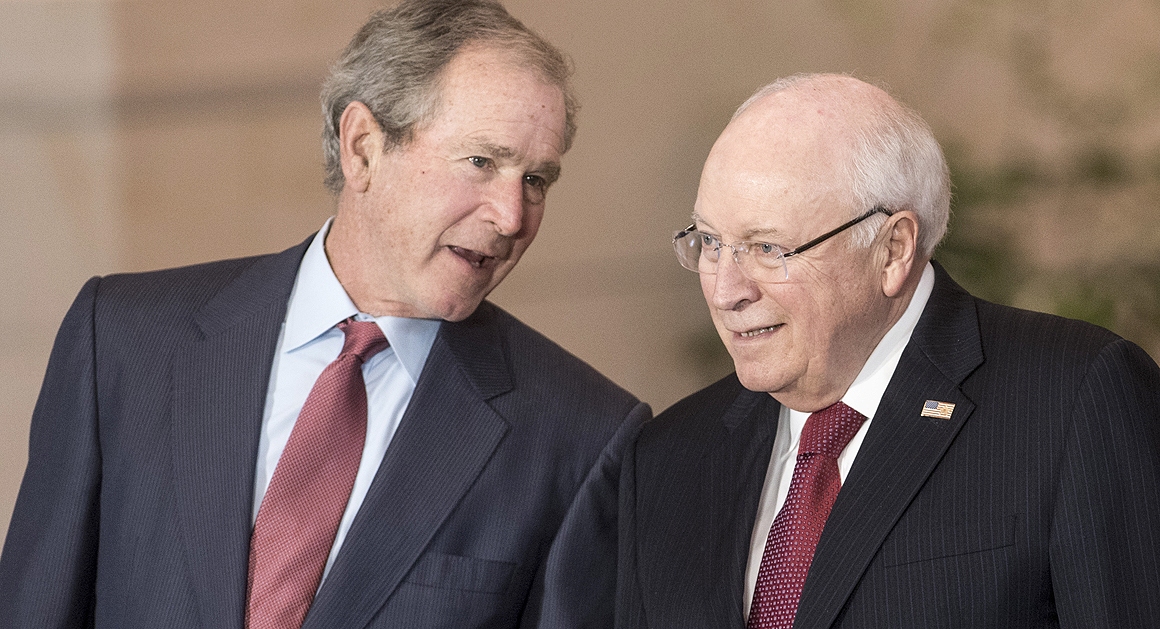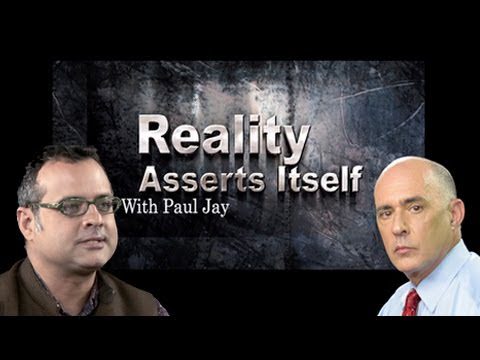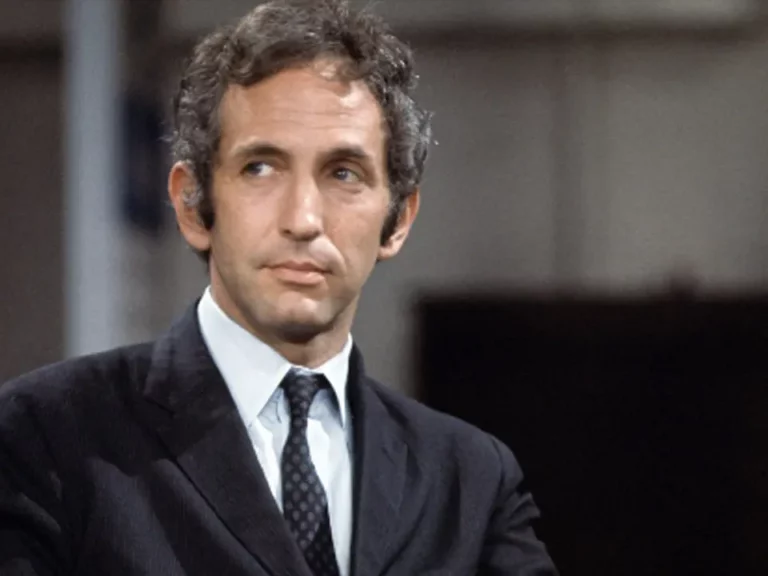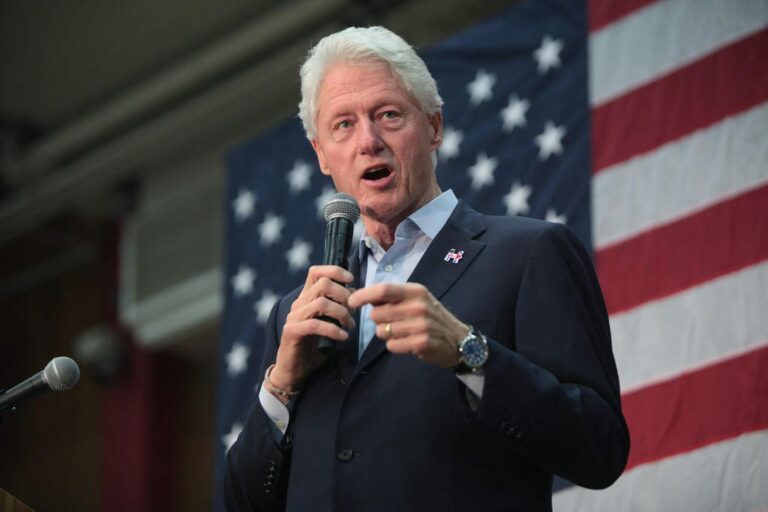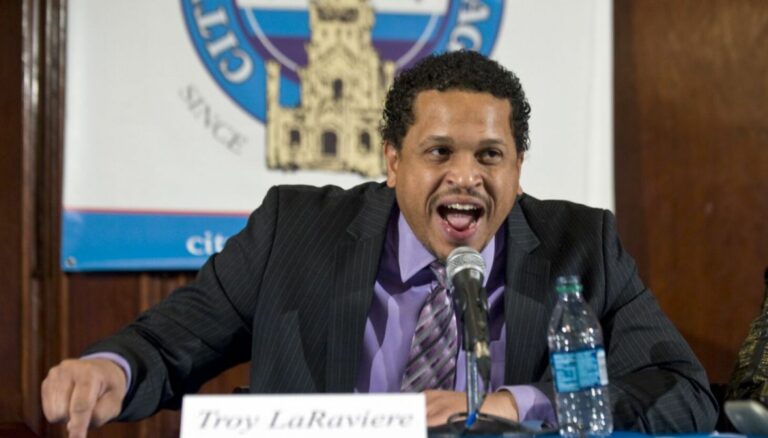Why Didn’t Bush/Cheney Prevent 9:11? – John Kiriakou on Reality Asserts Itself (pt 5/10)
This is an episode of Reality Asserts Itself, produced on April 23, 2015. On Reality Asserts Itself, Mr. Kiriakou and Paul Jay discuss the role of the White House in ignoring the CIA’s warning that “something terrible” was coming.
PAUL JAY, SENIOR EDITOR, TRNN: Welcome back to Reality Asserts Itself on The Real News Network. I’m Paul Jay. We’re continuing our series of interviews with John Kiriakou. Thanks very much for joining us.
JOHN C. KIRIAKOU, FMR. CIA ANALYST: Thanks for having me.
JAY: And just to remind everybody, John is a former CIA officer. Yes?
KIRIAKOU: Mhm.
JAY: And you’ll find his whole biography below here. And I’m hoping you’ll watch the earlier segments, ’cause this is going to make a heck of a lot more sense if you have, ’cause we’re working our way through John’s life. You left Greece. You came back in the year 2000, and you’re in Langley. You’re working on Greek terrorism. And then 9/11. So where are you, and how does it affect you?
KIRIAKOU: I was at CIA headquarters that day. I was supposed to go to the White House that morning with Cofer Black, later Ambassador Cofer Black. Cofer at the time was the director of the CIA’s Counterterrorism Center. And we had a meeting scheduled that morning with Condoleezza Rice, who at the time was the national security advisor, to discuss a Greek issue–which seems quaint now, but I had taken a call from a driver who said that our car was ready and to come out to the side entrance to ride to the White House.
JAY: Now, before we do that trip, what’s the mood at CIA? ‘Cause we know now, according to George Tenet, that he had told President Bush when he–first presidential national security briefing, that the number-one threat to the United States was Osama bin Laden and al-Qaeda.
KIRIAKOU: Yes.
JAY: That summer leading up to 9/11, Richard Clarke says, our hair is on fire. We know now that there were at least four or five, and maybe quite a few more, very specific pieces of intelligence that suggested there was going to be an attack. In fact, it was even known–some of the people that ended up on the planes that even had been identified pre-9/11–there’s a lot going on. Now, I know you’re working on the Greek file, but how much are you getting a sense of this?
KIRIAKOU: Well, I mentioned this in my book. In July–it was July 6, 2001–I was asked to spend the day with a visiting group of Arab intelligence officers. They came to have a day of briefings and meetings and handshakes and gift exchanges. And we did this kind of thing all the time with our foreign partners. So, as part of that day of briefings, I had asked for briefings from the Osama bin Laden group in the CIA’s Counterterrorism Center. Much to my surprise, they did not send a mid-level analyst, which is what I had expected, to do this briefing; Cofer Black himself came. And Cofer at the time was the director of the CIA’s Counterterrorism Center, then called the Counterterrorist Center. And Cofer started off this briefing by saying–and these were his exact words–he said, “something terrible is going to happen. We don’t know when and we don’t know where, but we know that it’s something on an unprecedented scale”. He said, the mood in the al-Qaeda training camps is one of jubilation. We’re hearing trainers speaking to their students and crying and saying, I’ll see you in paradise. We’re hearing codewords used to describe a major attack–the salesman is coming with vast quantities of honey; there’s going to be a great soccer match; things like that. And he said, we’ve never seen anything like this before. Our problem is we don’t know when and we don’t know exactly what the target is. And he said, I beg you, if you have any sources inside al-Qaeda, please help us. Well, these guys were silent. I think, frankly, they were stunned into silence, as I was. And at the end of the day, after they had left, I went to his office to thank Cofer for spending the time doing the briefing. Again, this was very unusual. And I said to him, Cofer, I have to ask you, was that for their benefit, or are things really that bad? And he said, things really are that bad; we’re going to get hit, and it’s going to be terrible.
JAY: This is July 2001. Now, we know there were various sections of the military intelligence and other areas of various intelligence agencies that were trying to model what the next attack might be.
KIRIAKOU: Yes.
JAY: One of those models for military intelligence was planes hitting the Twin Towers. One of them might even fall down. We did an earlier report on this. Some investigative journalists–Jason Leopold, was one of them–actually talked to one of the guys who was running that unit. That information, as far as we know, was suppressed, in a sense. It may have not made its way up the food chain, which was rather odd. Richard Clarke talks about–in fact, did an interview just a couple of years ago, which we also have–we ran on The Real News Network–with some critical information that never made it to him. He said that information, in the normal course of things, would have made it to him. Someone had to intervene not to let it go up the food chain.~~~
BOB GRAHAM, FMR. U.S. SENATOR: Fifty–five-oh–CIA personnel knew about this. You have to intentionally stop it. You have to intervene and say, no, I don’t want that report to go. And I never got a report to that effect.~~~
JAY: We asked Senator Bob Graham specifically about this memo, Osama bin Laden plans to attack the United States, that no action was taken after that memo. Now, you get a memo like that, and you’ve got the CIA saying something’s coming, how do you not do something?
KIRIAKOU: I remember Dick Clarke and Cofer Black both saying that they were shouting this from the rooftops and no one in the Bush White House would listen to them. You’re right about the modeling. We knew from the early 1990s that al-Qaeda was interested in using airliners as a weapon. The CIA analysis at the time was that the attack would probably be against American embassies again overseas, because they had such great success doing that in the past.
JAY: Except then you get the memo,–
KIRIAKOU: Right.
JAY: –the memorandum that bin Laden plans to attack the United States
KIRIAKOU: Well, we wrote the memo.
JAY: Right. You wrote the memo.
KIRIAKOU: Yeah, we wrote the memo.
JAY: The CIA writes the memo to, as a presidential briefing.
KIRIAKOU: Yes.
JAY: Right.
KIRIAKOU: Yeah. So we had the memo.
JAY: So where [crosstalk] information [crosstalk]
KIRIAKOU: Which information’s that?
JAY: That Osama bin Laden plans to attack United States.
KIRIAKOU: All-source intelligence. The analysts were able to put that together. And based on these little bits of information that they’re able to pull together, they decided that the attack was probably going to be in the United States, or at least that the intention to attack was in the United States. We didn’t know that they were already here, because the FBI didn’t tell us.
JAY: This is the group in Seattle.
KIRIAKOU: Well, they were all over the place. They were in Florida. They were in Washington. They were all over the place.
JAY: But the FBI did have knowledge of certain–.
KIRIAKOU: Or at least some of them.
JAY: Some of them.
KIRIAKOU: Yeah. Sure
JAY: I think one in Seattle in particular turned out to be an FBI informant that had two of the people–.
KIRIAKOU: One of the hijackers?
JAY: No.
KIRIAKOU: I’m talking about the 19 hijackers.
JAY: Yeah. Well, two of the hijackers, apparently, were staying with a guy, a professor, who actually had some informant kind of connection with the FBI, and the FBI didn’t tell the CIA.
KIRIAKOU: The FBI’s relationship with the CIA at the time, and really throughout history, has been absolutely terrible. We don’t like them, they don’t like us. And at least until September 11, and probably for some time afterwards, there really was very, very little cooperation. Now, there were FBI agents, certainly, who were assigned to the CIA’s Counterterrorism Center, and there were CIA officers assigned to the FBI’s Counterterrorism Center, but that didn’t necessarily mean that both sides were seeing all information.
JAY: You get a memorandum–and you write a memorandum; when I say you, I mean the president gets a memorandum from the CIA saying Osama bin Laden plans to attack United States–you guys have intelligence at the level that he tells you and he tells this Arab country’s intelligence officers that something terrible is coming on a whole new scale. Why do you think you cannot get Condoleezza Rice to listen or the president to listen?
KIRIAKOU: So this is one of the enduring mysteries of the Bush administration. I don’t know why the Bush White House was not focused solely on trying to stop this attack.
JAY: [crosstalk]
KIRIAKOU: We all knew what was coming.
JAY: –seemed to be making efforts not to want to know.
KIRIAKOU: It kind of seems that way.
JAY: I mean, how do you get–Coleen Rowley’s group in Minneapolis can’t get a warrant to go into a computer of a guy that wants to learn how to take off and not [crosstalk]
KIRIAKOU: And not land.
JAY: I mean, this is–how do you demote Richard Clarke? How do you have a briefing by the CIA,–
KIRIAKOU: And they did.
JAY: –who tells you the number-one problem’s al-Qaeda, and you demote your antiterrorism czar?
KIRIAKOU: That’s a good question.
JAY: How do you tell–apparently, the FBI was told, don’t focus on terrorism; we want you to focus on white-collar crime or something else.
KIRIAKOU: Right. There was an article just in the paper saying that the FBI is still unequipped to handle counterterrorism cases. Nobody there speaks Arabic, for example. They’re still not focused.
JAY: Well, I guess what I’m suggesting is that–not suggesting–there seems to be actual real evidence, hard evidence, that it’s not a lack of focus; they were told not to focus.
KIRIAKOU: By whom? Who does the–.
JAY: By the White House. The White House is telling the FBI to deprioritize terrorism. They demote Richard Clarke. And then Richard Clarke’s screaming he can’t get their attention when his hair is on fire. I mean, this is–I asked Senator Graham this. Well, what do you think? Is this, like, a deliberate culture created to not know what’s coming? And here’s what he said.~~~
GRAHAM: The fact that it was so pervasive that virtually all of the agencies of the federal government were moving in the same direction, from a customs agent at an airport in Orlando who was chastised when he denied entry into the United States to a Saudi, to the president of the United States authorizing large numbers of Saudis to leave the country, possibly denying us forever important insights and information on what happened. You don’t have everybody moving in the same direction without there being a head coach somewhere who is giving them instructions as to where he wants them to move.
JAY: So that includes before and after the events. GRAHAM: Primarily before the event. After the event, it shifts from being an action that supports the activities of the Saudis to actions that cover up the results of that permission given to the Saudis to act.~~~
JAY: There’s got to be a coach. The coach is in the White House. He didn’t say Dick Cheney,–
KIRIAKOU: Right.
JAY: –but one can–he’s not leaving, you know, much difficulty trying to understand what he’s trying to say here. What do you think? Was there a deliberate leaving the back door open? And let me put one more little piece of context. We know in the Project for a New American Century this document that a lot of neocons signed in the 1990s, which called, essentially, for the assertion of American military power around the world to reshape the world. And it even goes–it goes so far as to say international law was, like, useful when there was another superpower, but now it’s not really so necessary anymore, international law. We need to do the regime changes we need. But they say we’ll never get the American people behind us, because there’s still the Vietnam syndrome, and only another galvanizing event–I may not be quoting it exactly, but it’s pretty close–galvanizing event like another Pearl Harbor would create public support for this kind of a foreign policy. Then we get what seems like evidence that they don’t want the agencies to know.
KIRIAKOU: I don’t know, to be honest with you. I can speculate. I can tell you that the war game model showing an attack with an airplane was one of hundreds, hundreds of models. To be able to pick out one model and say this is the one that it’s going to be I think was probably impossible. I can tell you, in the CIA I never saw people work so hard in my entire life trying to disrupt this attack, and having not enough information and nowhere near the budget necessary to really do it.
JAY: And doing it in spite of the White House,–
KIRIAKOU: Yeah.
JAY: –in a sense,–
KIRIAKOU: Yeah.
JAY: –because the White House is not listening to their own CIA director.
KIRIAKOU: They’re not listening, they’re not cooperating, and they’re offering appropriate funding. Now, Dick Clarke, Dick Clarke was a hero of the Clinton administration, but I think that when the George W. Bush people came into power, they saw this guy that’s been in the same position for ten years, he’s gay, he’s a liberal Democrat; it’s time to give him the heave-ho.
JAY: So why not give him the heave-ho?
KIRIAKOU: And they demoted him.
JAY: No, no, no. Why not give him the heave-ho and put someone else at the same level, with cabinet-level access, and put in somebody you like who–I mean, it doesn’t have to be Richard Clarke.
KIRIAKOU: Well, Condi Rice took it over. It was supposed to be Condi Rice’s responsibility, counterterrorism.
JAY: Well, she’s not even listening to the people who are doing the work.
KIRIAKOU: Well, that’s on Condi Rice, isn’t it?
JAY: Well, partly.
KIRIAKOU: Yeah.
JAY: But as I’m saying, there seems to be a pattern here. It’s not like–it’s not just some series of–.
KIRIAKOU: I wouldn’t call it hard evidence, though, like you do. I would call it some circumstantial evidence.
JAY: There’s certainly enough evidence that it should be looked into, wouldn’t one think?
KIRIAKOU: Yeah, I would think so. Sure. But who in Congress has the balls to even take something like this up? It’s just not going to happen.
JAY: No, it’s not. But the media doesn’t have the balls either.
KIRIAKOU: Well, the media doesn’t have the balls, no.
JAY: After we interviewed Bob Graham, agree or disagree, Bob Graham is an insider.
KIRIAKOU: Absolutely.
JAY: Bob Graham is a serious intelligence guy.
KIRIAKOU: Yes, he is. Highly respected.
JAY: After he leaves the Senate, after he writes this book saying the number-one reason to impeach George Bush is ’cause he didn’t stop 9/11 when he could have–that’s in Graham’s book–after he says that the Saudis are directly involved–I mean, he says all these things, and Leon Panetta appoints him to the external advisory committee of the CIA.
KIRIAKOU: Right.
JAY: Like, he’s not a marginal–.
KIRIAKOU: No, no. He’s a serious guy. Right.
JAY: A serious guy. So I do this interview with Graham, and he says all the football players running in the same direction, and we’re talking about the American intelligence agencies not being able to pursue what they find is evidence of a growing plan to attack America, he says there is a coach. That’s news, right? We send this out to all the news organizations up and down the United States. As a release, we offer them the footage for free. We give them a transcript of the key sections. Not a single news agency or a newspaper even calls us to find out what we have.
KIRIAKOU: That’s the story of the mainstream media in this country. They’re just not interested in deep, investigative, serious reporting.
JAY: I mean, I have to say, I think part of it is is this stuff about the buildings coming down and, you know, explosives and various thermal–.
KIRIAKOU: Yeah, I don’t believe any of that.
JAY: I think it’s actually–you know, I’ve told people that believe this stuff, you know, if 50 years or 100 years from now you turn out to be right, I actually still think you should shut up right now, because there’s a real conspiracy–there’s at least some verifiable evidence that there might have actually been a deliberate attempt to mess with the intelligence agencies and leave the back door open. There’s at least enough–what’s it called?–prima facie to look into it. And the stuff about the building just kind of freaked everyone out so much that it seems so absurd. And even if it turns out it’s true, it gets in the way of something that is actually there and verifiable.
KIRIAKOU: Mhm. Mhm. Something important.
JAY: Well, rather important–it’s 9/11. If the thing is–if there is a certain kind of collaboration, and if it is with the Saudis, which is what Bob Graham’s committee concludes, that the Saudi government is directly involved in, in their words facilitating–or Graham’s words, facilitating and funding, then–.
KIRIAKOU: See, I never saw that. I saw Saudi individuals who–some of whom had ties to the Saudi government or the Saudi royal family, but I never saw this as a Saudi conspiracy.
JAY: He says so. He says the committee reached that conclusion. My own take, having interviewed quite a few people that know the Saudi governmental structure, they describe it more like a feudal structure, in a sense, that there’s–
KIRIAKOU: It is.
JAY: –many power centers.
KIRIAKOU: Sure–well, no. There aren’t many power centers. There’s one made power center, and that’s the king. He’s an absolute ruler. But there are influential people around the country, and their influence is based on the amount of money that they have. That’s been going on since oil was discovered in Saudi Arabia.
JAY: So you can imagine that something like this can happen without coming directly from the king.
KIRIAKOU: Absolutely. Absolutely. I mean, look at the bin Laden family. The bin Laden family, it’s a highly respected, old family in Saudi Arabia, originally from Yemen. The old man bin Laden was worth billions of dollars, and it was because he was the country’s greatest construction magnate, and not just for Saudi Arabia, but first all over the peninsula, and then really throughout the Middle East. If you wanted something built–an airport, a port, hospitals, hotels–it was bin Laden that did it. No, the bin Ladens have absolutely no blood ties to the royal family. They don’t even have any marital ties to the royal family. But the bin Ladens are a force to be reckoned with in Saudi Arabia. I think it was people who had bin Laden kind of money who were involved in funding and financing al-Qaeda. It wasn’t necessarily the Saudi government. It wasn’t necessarily even members of the Saudi Royal family, although there probably were a couple of rogues. I think it was these wealthy businessmen who really keep the country humming, at least keep its non-oil economy humming. They were the ones we should have been looking at.
JAY: I have no idea who’s right in this, but it is beyond belief, is it not, that there has never been an investigation into what’s in those 28 pages, the 28 redacted pages of the joint congressional investigation.
KIRIAKOU: Absolutely.
JAY: Graham, without ambiguity, says the word government. And in the interview I stress it by saying government. He says the government. I said, not some rogue princes or something? He says, no, government. He says they have hard intelligence, and that it’s in the 28 pages, and he’s not allowed to say what’s in the 28 pages.
KIRIAKOU: I never saw any such intelligence. Never.
JAY: But you weren’t in that section.
KIRIAKOU: But I spent most of my career working on Saudi Arabia in one way or another, and I just never saw anything like that.
JAY: Okay. Alright. We’re going to continue our discussion with John. We’re going to pick up where he was on 9/11 and the atmosphere in CIA and his role. And he ends up in Pakistan. Please join us for the continuation of Reality Asserts Itself on The Real News Network.
“John Chris Kiriakou (born August 9, 1964) is an American author, journalist and former intelligence officer. Kiriakou is a columnist with Reader Supported News and co-host of Political Misfits on Sputnik Radio.
He was formerly an analyst and case officer for the Central Intelligence Agency (CIA), senior investigator for the Senate Foreign Relations Committee, counterterrorism and a consultant for ABC News. He was the first U.S. government official to confirm in December 2007 that waterboarding was used to interrogate al-Qaeda prisoners, which he described as torture.
In 2012, Kiriakou became the first CIA officer to be convicted of passing classified information to a reporter. He pleaded guilty and was sentenced to 30 months in prison.”
